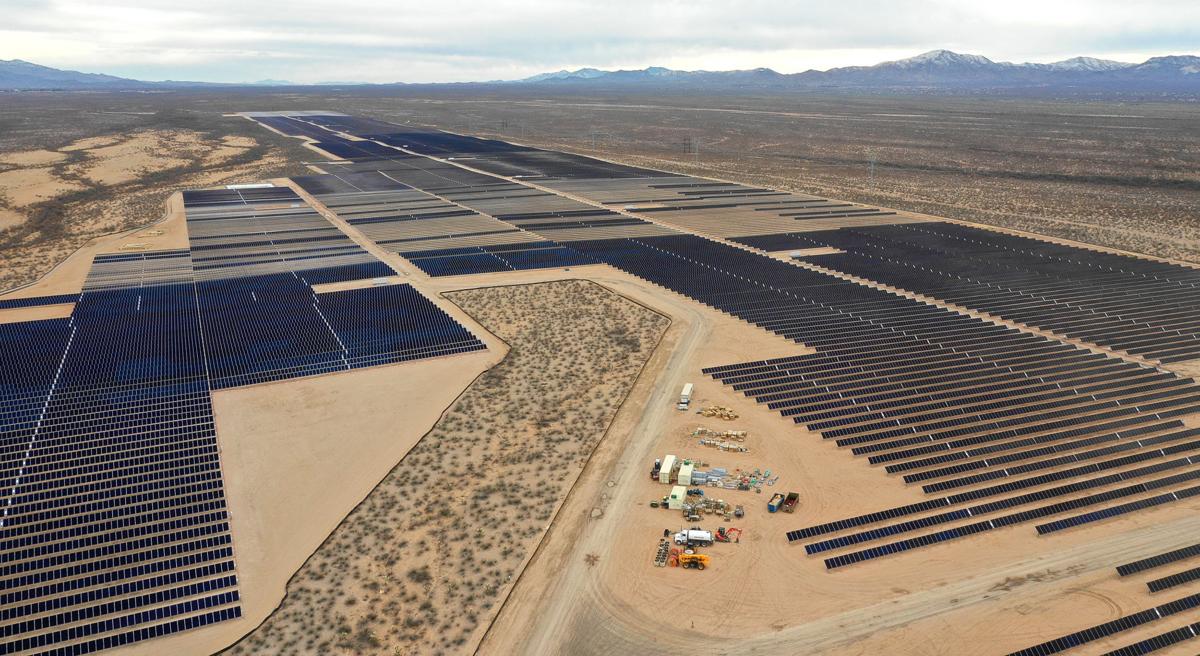State lawmakers voted Wednesday to strip the Arizona Corporation Commission of its power to mandate the use of renewable energy by utilities.
HB 2248, given preliminary approval on a voice vote, bars the panel from adopting or enforcing any new policy, decision or rule that regulates the electric generation resources without specific legislative authorization. And the measure, sponsored by Rep. Gail Griffin, R-Hereford, provides no such authority.
State senators have yet to consider virtually identical legislation in SB 1175.
The most immediate effect would be to block a proposal before the commission that would require that half of the state’s energy be generated from carbon-free sources by 2035 and have power be totally carbon free by 2050.
That includes not just wind and solar but also nuclear. What it requires be phased out is electricity generated from coal and natural gas.
Griffin’s proposal does not totally eliminate any clean-energy policies. Instead, it leaves in place the requirement that the commission adopted in 2006 that utilities generate 15% of their power from renewable sources by 2025.
The legislation follows a ruling by the state Supreme Court on an unrelated issue touching on the power of the constitutionally created five-member commission.
In essence, the justices said the commission has absolute power to regulate rates.
The court also said the commission has power over issues like health and safety. But the justices said that is subject to legislative oversight.
Griffin said that’s precisely what’s needed, saying the rules being pushed by the commission are flawed.
“There are certain things that the commission has not done as far as cost-benefit analysis and lowest cost possible price to the ratepayers,” she said.
Foes of the measure pointed out that the proposal to go carbon-free was approved by an elected commission dominated by Republicans. Griffin said that’s irrelevant.
“They’re not the fourth branch of government,” she said.
Rep. Aaron Lieberman, D-Paradise Valley, said that doesn’t tell the whole story.
“It says very, very clearly in the constitution the Corporation Commission is in charge of the public health and well-being of the power company customers — their ‘patrons’ is the actual word — and employees,” he said.
“That’s millions of Arizonans,” Lieberman continued. “And you cannot separate out how you make power from the health impact on the patrons.”
Griffin said she doesn’t read the language that way.
“To me, that means ... you don’t want to leave trenches open, you don’t want to have live wires hanging,” she said.
“We need to chime in on our ratepayers and pay attention to what the Corporation Commission is doing,” Griffin continued. “And many think they’re going over and above what they’re authorized to do.”
House Speaker Russell Bowers, R-Mesa, said the issue is even simpler than that. He said the commission sets “just and reasonable rates” while the legislature sets energy policy.
Bowers said the experience in Texas during the ice storm proves his point, noting the images of frozen wind turbines, with Texans facing “collapsing water systems and contamination” when the power went out.
“It illuminates to me a very important fact, and that is a diversity of sources of energy, a robust diversity of reliable energy, is critical for maintaining life and protecting property,” he said.
But what happened in Texas is more complex than that.
The state is heavily dependent on natural gas with more than 50% of its electricity coming from that source. And many of those natural gas pipelines froze.
The Electric Reliability Council of Texas, which is in charge of the state’s power grid, said wind is a hair less than 25%.
“We are blessed in Arizona with reliable energy thus far,” Bowers said. “And we need, as a body, us, to establish what (is) the future energy policy of the state.”
The legislative move has drawn the ire of Republican Bob Burns, the former chairman of the Corporation Commission who has been a prime proponent of renewable energy. In a letter to legislative leaders, he said if lawmakers took on the duty of setting renewable energy policy, then utilities would use their finances to elect legislators who support their policies.
“There would be no incentive to cut down the money tree of dark money that would flow to the candidates for governor and legislature in the future,” Burns wrote.
Beyond that, Burns said the regulators are experts in and focused on utility issues, versus lawmakers who he said have the “distraction of hundreds of other important issues.”
HB 2248 still needs a final roll-call vote in the House.





